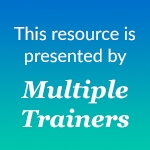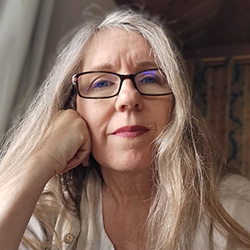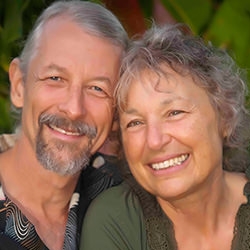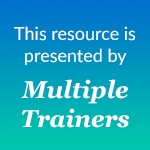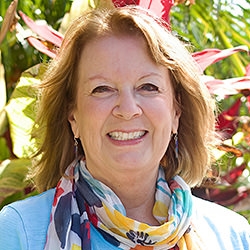
Search Results: practice group
-
Ask the Trainer: “I would like some suggestions on how to interact with a member of the practice group I started. This individual speaks and acts in a manner I interpret as angry and controlling.”
-
-
-
This article explores ways of starting and maintaining NVC study groups and practice groups. It offers recommended reading support materials and poses questions to consider for structuring and organizing the group.
-
Ask the Trainer: "Recently, I was sitting in my weekly practice group trying to connect to my reasons for wanting to give empathy to a particular person. She was telling us about some painful feeling she was having, but was not connecting to her needs."
-
Ask the Trainer: "A participant in our beginners' NVC practice group asked the co-facilitators if there was a confidentiality agreement that was typically used in NVC practice groups?"
-
Ask the Trainer: "I'm part of a small, self-led NVC group that's been working together for almost two years. We are experiencing some growing pains in that we're still not certain how and under what circumstances to make requests, especially negative ones."
-
Poetic License is a fun group exercise that's sure to incite laughter in your NVC group!
-
We all blow it sometimes. Maybe we are triggered and react in ways we regret. Or we unknowingly say or do something that unexpectedly touches a nerve for someone else. Either way, how do we heal the disconnection? In this session, you'll learn how to integrate skills for repairing relationships.
-
Use these cards in your practice group or NVC training to understand 4 different ways of responding to hard to hear messages. Become aware of the way you habitually respond to stimulus and develop skills to respond with empathy and express honestly.
-
Join certified CNVC trainers Jim and Jori Manske to explore the relationship between gratitude and Nonviolent Communication as a way to learn and practice NVC.
-
In this practice group class, certified CNVC trainers Jim and Jori Manske are facilitating the exploration of the topic of Mourning using the three modes of NVC: self-empathy, honesty and empathic presence. You'll learn how to accept a loss, let yourself feel the sadness and all the emotions, and allow yourself to grieve.
-
-
Ask the Trainer: "I have noticed that sometimes when I am in a story-telling mood I am usually trying to prove that I am right and once I connect with a need the urge to give all the information goes away."
-
This exercise is most often the first activity in a beginning level workshop after the usual logistics/history/check-in. Penny Wassman experiences it as an opportunity for people to build connection with one another.
-
Ask the Trainer: "At one point in my practice, it was brought to my attention that some people find the use of 'formal NVC' off-putting, or mechanical. Do you have any input or insight into this?"
-
NVC Mingle is a fun group exercise to practice NVC principles and create quick connections with others.
-
October always makes me think about Marshall Rosenberg, the founder of Nonviolent Communication. He was born October 6, 1934. If he were still alive today (he died February 7, 2015), he would be 89 years old!
-
Bring your teaching of NVC to a new level in these intensive course recordings that focus on shifting the intention of your teaching from how to why while embodying the principles and practice of NVC every step of the way - from planning to delivery.
-
Join CNVC Certified Trainer Jerry Koch-Gonzalez, Greg Rouillard and Certified Dynamic Governance (Sociocracy) Consultant John Buck for this six-session course recording to learn how to transform your method of meeting facilitation. Many NVC organizations have begun using sociocratic tools, including circle meetings and decision making by consent, with satisfying results.





